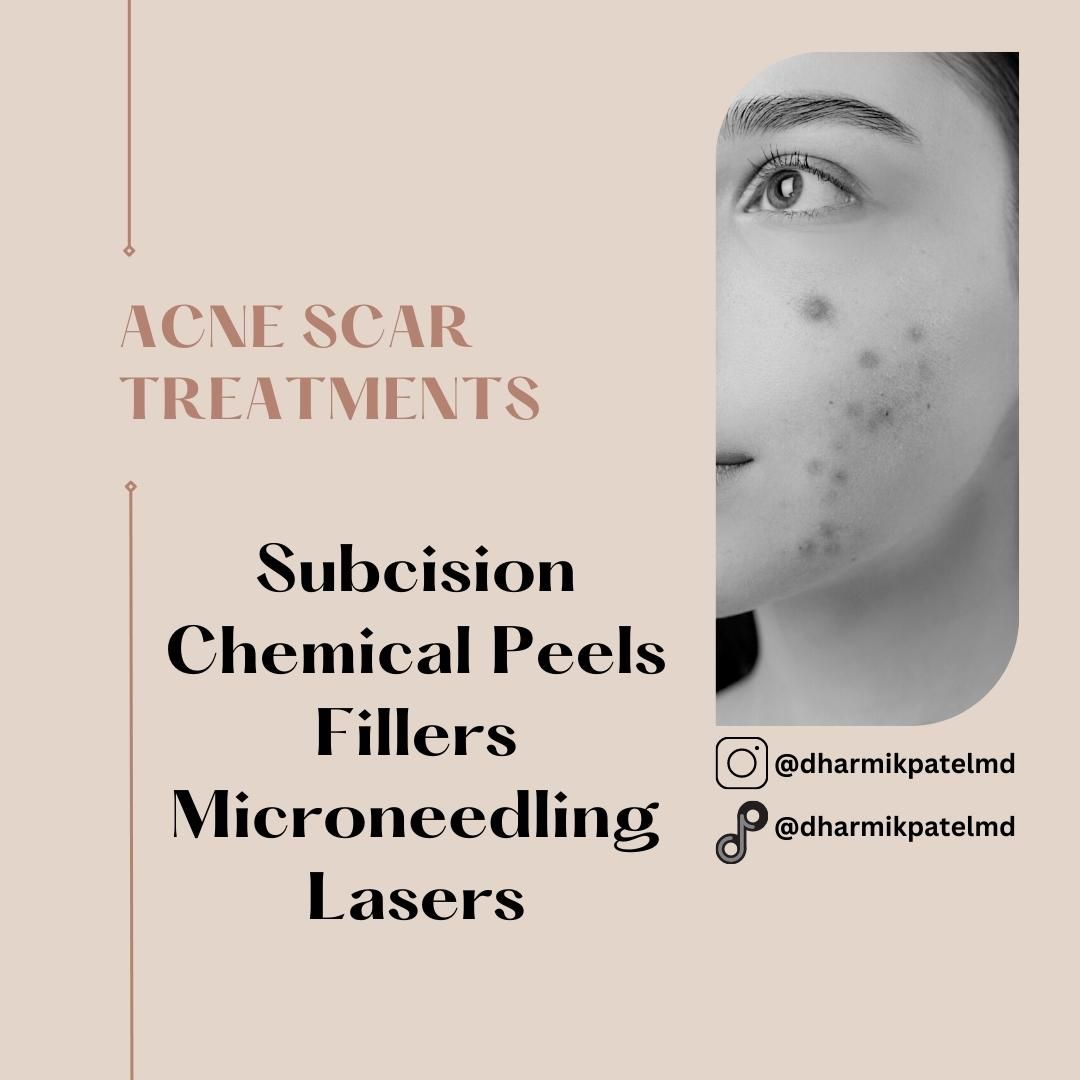Acne Scars

Acne, a common skin condition affecting millions worldwide, often leaves behind a lasting reminder in the form of acne scars. These scars can significantly impact one's self-esteem and quality of life. However, with advancements in dermatological techniques, there are effective treatments available to help diminish the appearance of acne scars and restore skin's smoothness and clarity. In this article, we will delve into some of the key treatments for acne scars, including chemical peels, laser therapy, and the importance of seeking a skilled dermatologist for these treatments.
Acne Scars: Types and Causes
Acne scars are a result of the skin's natural healing process after severe acne lesions. There are various types of acne scars, including icepick scars (narrow, deep pits), boxcar scars (shallow depressions with well-defined edges), and rolling scars (undulating, wave-like depressions). These scars form due to collagen disruption during acne's inflammation and healing stages.
Chemical Peels: Medium-depth or focal deep peels
Chemical peels are a popular option for treating acne scars. Typical treatments with AHAs and BHAs chemical peels are not enough to help with the majority of acne scars.
Laser Therapy: Precision and Regeneration
Laser therapy has revolutionized the treatment of acne scars. Different types of lasers, such as fractional lasers and CO2 lasers, can target specific layers of the skin to stimulate collagen production and promote skin regeneration. These treatments encourage the growth of new, smoother skin and help to minimize the appearance of scars. Laser therapy is particularly effective for deeper scars and offers a more precise approach to scar treatment.
Subcision
Subcision is a minimally invasive dermatological technique used to treat depressed scars, including those caused by acne. It is used to break the fibrous tissue bands that tether the scarred tissue to the underlying skin. This releases the scar, allowing it to rise and blend with the surrounding skin. By promoting collagen formation and remodeling, subcision can effectively improve the appearance of acne scars, particularly rolling and boxcar scars. It's often used in combination with other treatments like laser therapy or fillers for enhanced results, providing a comprehensive approach to achieving smoother skin texture.
Effective Acne Management: A Prerequisite for Scar Prevention
Prevention is the best medicine; this adage holds true for acne scars. Effectively managing acne outbreaks from the outset can significantly reduce the risk of scarring. Dermatologists can recommend personalized treatment plans, including topical and oral medications, to manage acne effectively and minimize the likelihood of scars forming.
The Importance of a Skilled Dermatologist: Expertise Matters
When considering treatments for acne scars, consulting a skilled dermatologist is crucial. A dermatologist with specialized training and experience in scar management can accurately assess the type and severity of scars and recommend the most suitable treatments. Chemical peels and laser therapy require precision and expertise to achieve optimal results while minimizing potential risks. A dermatologist's guidance ensures that the chosen treatment plan is tailored to the individual's unique skin type and scar characteristics.
In conclusion, acne scars need not be a lifelong burden. Advancements in dermatological treatments, such as chemical peels and laser therapy, offer hope for those seeking to improve the appearance of their skin. However, effective acne management remains the cornerstone of scar prevention. When seeking treatment for acne scars, entrusting the expertise of a skilled dermatologist is essential for achieving safe and satisfying results. Remember, every individual's skin is unique, and a personalized approach guided by a knowledgeable professional can pave the way to smoother, more radiant skin.

